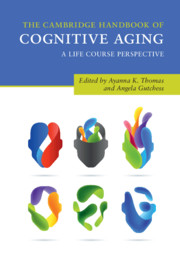Book contents
- The Cambridge Handbook of Cognitive Aging
- The Cambridge Handbook of Cognitive Aging
- Copyright page
- Contents
- Figures
- Tables
- Contributors
- Introduction
- Part I Models of Cognitive Aging
- 1 Overview of Models of Cognitive Aging
- 2 Cognitive Reserve
- 3 How Age-Related Changes in the Brain Affect Cognition
- 4 Neuroadaptive Trajectories of Healthy Mindspan: From Genes to Neural Networks
- 5 Cognitive Aging: The Role of Neurotransmitter Systems
- 6 How Arousal-Related Neurotransmitter Systems Compensate for Age-Related Decline
- Part I Summary: Models of Cognitive Aging
- Part II Mechanisms of Cognitive Aging
- Part III Aging in a Socioemotional Context
- Part IV Cognitive, Social, and Biological Factors across the Lifespan
- Part V Later Life and Interventions
- Index
- Plate Section (PDF Only)
- References
5 - Cognitive Aging: The Role of Neurotransmitter Systems
from Part I - Models of Cognitive Aging
Published online by Cambridge University Press: 28 May 2020
- The Cambridge Handbook of Cognitive Aging
- The Cambridge Handbook of Cognitive Aging
- Copyright page
- Contents
- Figures
- Tables
- Contributors
- Introduction
- Part I Models of Cognitive Aging
- 1 Overview of Models of Cognitive Aging
- 2 Cognitive Reserve
- 3 How Age-Related Changes in the Brain Affect Cognition
- 4 Neuroadaptive Trajectories of Healthy Mindspan: From Genes to Neural Networks
- 5 Cognitive Aging: The Role of Neurotransmitter Systems
- 6 How Arousal-Related Neurotransmitter Systems Compensate for Age-Related Decline
- Part I Summary: Models of Cognitive Aging
- Part II Mechanisms of Cognitive Aging
- Part III Aging in a Socioemotional Context
- Part IV Cognitive, Social, and Biological Factors across the Lifespan
- Part V Later Life and Interventions
- Index
- Plate Section (PDF Only)
- References
Summary
Much of the extant work in the cognitive neurosciences of aging has focused on identifying the neural correlates of age-related declines in episodic memory and working memory. This chapter reviews evidence from human studies that speaks to the hypothesis that age-related dysfunctions in specific neurotransmitter systems play a critical role in cognitive decline. Based in large part on results from functional neuroimaging studies including positron emission tomography (PET) and pharmacological functional magnetic resonance imaging (fMRI), we conclude that there is emerging evidence that dysfunctions in the dopamine, noradrenaline, and cholinergic systems play a critical role in age-related cognitive decline of working memory and episodic memory. These conclusions are important and encourage further study in order to tailor interventions that preserve cognitive functions in older age via augmentation of neurotransmitter functions.
Keywords
Information
- Type
- Chapter
- Information
- The Cambridge Handbook of Cognitive AgingA Life Course Perspective, pp. 82 - 100Publisher: Cambridge University PressPrint publication year: 2020
References
Accessibility standard: Unknown
Why this information is here
This section outlines the accessibility features of this content - including support for screen readers, full keyboard navigation and high-contrast display options. This may not be relevant for you.Accessibility Information
- 2
- Cited by
